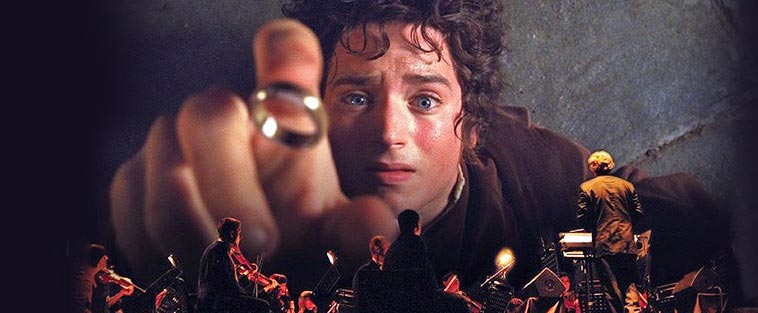By David Lewellen
What could make 10 hours of elves, dwarves, hobbits, and orcs even better? A live symphony orchestra, of course.
The Chicago Symphony Orchestra will perform the soundtrack to all three films in the Oscar-winning The Lord of the Rings trilogy on consecutive evenings August 18–20 at Ravinia, with the movies projected on screens in the Pavilion and on the lawn. The CSO had performed the individual films at Ravinia in previous years, but seeing the entire trilogy over three evenings will be a new experience in the Midwest.
Director Peter Jackson’s series of fantasy films, based on the novels by J.R.R. Tolkien, is “one of the great ways to introduce people to an orchestra, especially children and families,” said Welz Kauffman, president and CEO of the Ravinia Festival. The music by Howard Shore matches the movie’s epic nature, and “the score is another character in the movie itself. It helps propel the story,” he said. “It’s gratifying for great musicians to play.”
The film trilogy has been a big part of conductor Ludwig Wicki’s life for nearly a decade. Wicki, a lifelong fan of movie music, helped Shore prepare the performance version of the music, which included restoring some passages that had been cut from the finished soundtracks. (Shore won “Best Score” Oscars for the first and third films,as well as a “Best Song” Oscar for “Into the West” from The Return of the King; the films in total racked up 17 Oscars, with 11 alone for the third.) The live Fellowship of the Ring premiered in 2008, followed by The Two Towers in 2009 and The Return of the King in 2010. For those concerts, Wicki led the 21st Century Symphony Orchestra in Lucerne, Switzerland, which he founded in 1999 specifically to perform live movie soundtracks.
With a computer in front of him to give cues, “one part of my brain is all on the movie, and the other part is leading the orchestra and choir,” Wicki said. It’s an extra demand upon him, because the musicians are not wearing headphones and listening to a click track — a practice he dislikes. “It’s [using a click track] awful for the musicians. It’s very mechanical,” Wicki said. But in performance, while he concentrates on keeping the music synchronized with the action onscreen, “the orchestra only has to watch like normal and perform like it’s a concert piece.”
This is an excerpt of an article published on the CSO Sounds and Stories blog. Read the complete article here.

